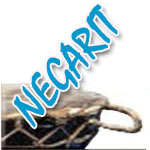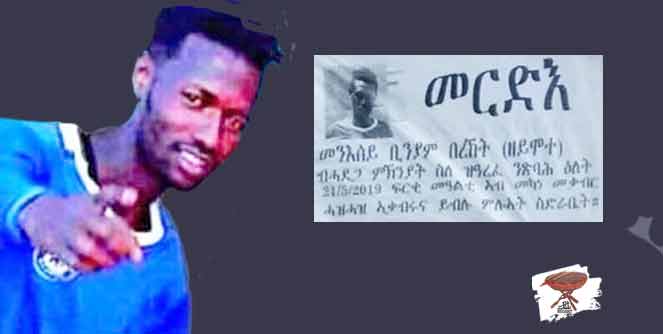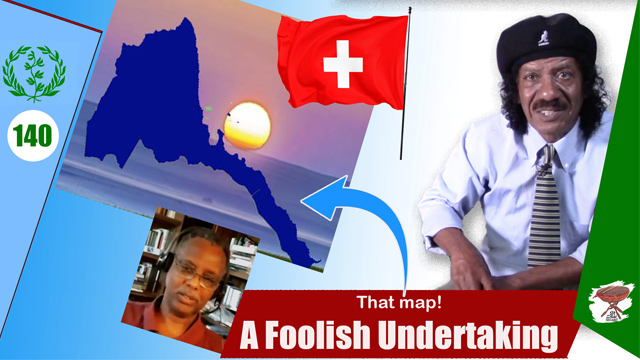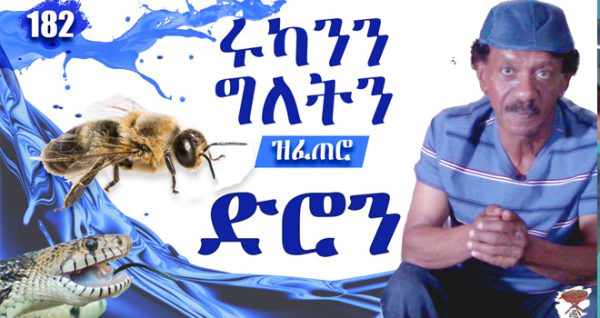A Wretched Eritrean In Qatar: Reportage

This is a rather long reportage on my recent trip to Qatar and I will tell you my impressions of the state, and particularly its politics and diplomacy; my impressions of what it takes to have an impact with Al Jazeera; the situation of Eritreans who live there; and maybe tell you about whatever happened to the interview I had planned with “His Excellency President Isaias Afwerki” and what became of it.
Flying out from California, I had a transit in New York—a long transit. Luckily, my friend Ahmed Raji was there to host me for a day in New York City before I headed to Qatar. I had no idea Ahmed changed his name to Ahmed Ibn Battuta—he didn’t show compassion to my feet and he mercilessly dragged me around Manhattan for hours; I suspect the whole time Ahmed was making me walk on the same street. He kept mentioning different street names though what I saw was the same skyscrapers over and over again until my feet became sore; they haven’t soothed until now.
That night I boarded a Qatari Airways jet heading to the Middle East, where I was invited to attend the Doha Forum. Unlike a few other invitations, I had accepted this one because I really wanted to visit Qatar. The three-day conference was the 12th Doha Forum: Enriching The Middle East’s Economic Future Conference. I was part of the group under UCLA’s Middle Eastern Studies Department, and I will tell you a little bit about the conference later on.
I always wanted to go to Qatar on a fact-finding mission and I found the right occasion to attend an important conference as an American and then embark on my mission as an Eritrean. It was a serious stock taking time.
Twenty-one years have passed since Eritrea became independent. It is another occasion to reflect, and see where other nations have reached and what they have achieved during that time. Twenty-one years since the Eritrean clock stopped, and the nation is still being pushed down and down once more. For twenty-one years the countries in our neighborhood (except Somalia) have been leaving us far behind in all aspects of life; and we watched in vain while they prospered. Twenty-one years ago we started together, now we haven’t climbed a single rung and many countries are looking down at us from the top of the ladder. This reflection and the sad situation of Eritrea was what made me write an article that appeared on New Internationalist magazine. You can read the online version of my article, “Eritrea’s Wretched Independence” here.
In the meantime, let me continue with my report and my fact finding mission. Of course, on top of my do-do list was visiting AlJazeera studios, and my obvious finding is that…
Al-Jazeera is not an Eritrean website
One cannot talk about Qatar without mentioning the great Qatari establishment called Al-Jazeera. I had the opportunity to visit the Al-Jazeera studios, meet with scores of its managers, editors, broadcasters and anchors. The respect I had for that institution has been doubled and tripled.
It saddens me when I see some Eritreans all worked up and angry at Al-Jazeera because it didn’t cover Eritrean news. I understand that because we at awate.com see similar outbursts from some individuals for not publishing the stuff that they send. Our policies are clear and we expect the material has to pass the test to be publishable. But many are not. News should not be propaganda pieces and press releases should have some information not a bland, monotonous page of incoherent text. If the small awate.com can have such a strict policy, one can imagine the strict policies that the giant institution called Al-Jazeera must have. Unfortunately there are some individuals who send nasty messages to the station, as if they are trying to coerce it into declaring that it as a member of the Eritrean opposition. And this has been a bad publicity for the Eritrean cause.
Al-Jazeera is not some cheap news outlet; it is an institution that boasts the best equipment that technology can offer; it is generously funded and it is the place where I saw the largest concentration of PhDs under one roof. At first, with all the “Doctor!” addresses flying around, I thought it was more Egyptianism: Egyptians call everyone Bash Mehandis, Mr. Engineer, regardless whether that person is an engineer or a high school dropout. But I discovered the Al-Jazeera doctors carried real PhDs. They are some of the very professional people I saw, and they streamline the programs, news or features, to reach the viewer in a professional manner, with admirable delivery. Impeccable language use and tone has made Al-Jazeera a leader in a loud revolution now raging in the thinking of the Middle Eastern people and the world beyond. It is an institution that Qatar, the founders and employees of Al-Jazeera, should be proud of without any humility. It is earned pride.
I found Al-Jazeera to be an independent media outlet. Though it was set up with a clear mandate and mission (to be the voice of the region), it is autonomous and is not beholden to the state bureaucracy—it just has to stick to its professionalism and be balanced. Would it be impartial to Arab causes? Of course not! Only a naive person would think it is neutral when it comes to the causes of the region to which Qatar, the patron of the station, belongs. It is just like expecting CNN or Fox News to be neutral on American issues. Al-Jazeera reflects Middle Eastern and Arab character for it cannot dress up itself with what it is not. And certainly the station is not biased against Eritrean issues as some believe. The problem is that the opposition is not creating news and no one can not expect Al-Jazeera to create Eritrean news when they don’t exist.
If anyone does something that makes noise, and is significant, then it would certainly be covered. And if someone is sending material to the station, it better be sent as a professional package. For example, reports should be brief and not one-hour long, sub-standard grainy video clips of songs or other insignificant material that might bore Eritreans let alone interest others. It is also important to note that not everyone is skilled enough to select and report stuff that is supposed to be aired. It is better if those who do not have basic skills and knowledge about the news industry, to refrain from taking initiatives that could damage the image of the opposition. Such practices invites the risks of Eritrean activists being considered a bunch of spammers, and that will result in all Eritrean materials finding their way to the trash bin. No one likes to deal with tons of insignificant clips that are a waste of time.
One more important advice: the few individuals who like to fight and insult foreign institutions should be reined by their colleagues. Al-Jazeera doesn’t owe Eritreans anything and we should not ask it to cover our issues in a rude manner as if we have a legal right to demand it. Communication requires respectful approach and diplomatic patience. If one had neither, it is better to stay away from the exercise altogether.
In short, I think I understand how the organization works. I have all the necessary contacts, addresses, methods of sending materials and I will share it individually with institutions that have the ability to handle such communications. In our case, the fact that everyone is trying to be a private reporter is really hurting our cause and we advise those who have other hobbies or skills to exploit them and stay away from mass communication unless they have what it takes. And although I am using Al Jazeera as a case study, my guess is that everything I have said above applies to all large, independent media institutions.
Knowing more about Qatari relations with Isaias was another thing I wanted to learn more about. And here is what I think I know about…
The Qatari diplomacy
This was an important thing I wanted to understand while in Qatar. Like many Eritreans, I was puzzled by the nature of the relations between Qatar and the Isaias regime. But unlike what I thought, I discovered that the relation is (among other things) a result of Qatar’s moderate and pragmatic foreign policy. Similar to a few other cities in the world, there is a large diplomatic presence in Doha; and Qatar has considerable number of embassies in many parts of the world. Qatar even has diplomatic relation with tiny countries that are difficult to find in a world map; and it pursues a very open and inclusive foreign relations policy. Even if Qatar’s diplomatic relations with any country goes soar for any reason, it tends to avoid severing it.
Apparently, the ability of Isaias to hold countries hostage (like he does with Sudan) and his cunning ability to hold a bargaining chip at any cost, has given him some mileage. Qatar’s relations with Isaias seems to be built on his blackmailing ability in the Sudan (Eastern region, South Sudan and Drafur); his previous leverage with the Somali forces; and his nasty habit of threatening Djibouti. All three countries are members of the Arab League and the Muslim League, and Qatar would be duty bound to help them out, and that can only be made possible by engaging in a mediation effort and influencing the Eritrean tyrant. Otherwise, Qatar has neither a special interest in Eritrea as it is, nor an investment worth talking about. Relative to Qatar’s wealth and its foreign investment, what it might have invested in Eritrea is insignificant—it cannot be considered equal to the pocket money of a small Qatari businessperson let alone be compared to the huge international investment portfolio of the Qatari state.
In fact, Qatar has funded the building of a mosque in Keren, in a location that the regime allocated after it confiscated the mosques’ land in the foothills of Tigu Fort, a plot that has been owned by the mosque for decades. But that is not the issue here; understanding the nature of Qatar’s relation to Isaias and his regime is.
From my field research, talking to people on the know, I came to understand that Qatar is very prudent in its dealing with Eritrea. The understanding of Qatari politicians of the Eritrean society and its political tribulations is deep and impressive—and I did not have to educate them on something they already know very well. Most of the people I talked to warned me against radicalism of any sort within the Eritrean politics and that Qatar would never bet on anything that would adversely affect the cohesion and unity of Eritreans. They repeatedly emphasized that to them, Eritrean stability is of paramount importance and that stability cannot be achieved unless all the components of the country are united to protect their unity with equal zeal. In short, no backdoor approach that doesn’t represent Eritrean reality will have acceptance in political Qatar. A diplomat told me, “we deal with nations not with its sections separately.”
I see an opportunity in knocking at the doors of this enlightened nation just to carry the message of the voiceless. But I advice that such approach should be in an organized manner. I believe a broad-based, diverse, democratic institutions like the Eritrean National Conference for Democratic Change (ENCDC), or similarly organized associations, are the right bodies that should do the approach. Attempt by Individual parties and associations trying to establish independent relations would not fly because no one wants to deal with dozens of scattered entities—I wish the Ethiopians would also adopt this policy and stop dealing with all the chess pieces and parts of the Eritrean opposition and limit their main relation to the ENCDC.
As I mentioned above, I left to Doha from New York and it felt like I traveled…
From Manhattan to Manhattan
The similarity between the skyline of Manhattan and Doha is amazingly similar, only the skyscrapers of Doha are fewer, newer and more flamboyant. The city’s shoreline seemed like an empty canvass that was offered to the best artists to liberally draw on it, each creating a masterpiece, sculptures that pretended to be skyscrapers. Architects are having a field day in the Gulf exploding their creativity and experimenting with new building materials and styles, and coming up with works of art. But after a while, I began to be weary of the skyscrapers thinking that the rights of the ancient Arab architecture, the Arabesque decorations, the mosaic walls, the arched doorways and the like have been violated. I thought the traditional Arab building was cruelly being buried alive and complained about that; but a friend heard me complain and smiled.
My friend told me that he will take me back in time. True to his promise, he did when he took me to a part of Doha, a huge portion of the city, that was rebuilt and revived based on its traditional style using traditional materials and modern technology. Immediately I felt at home in that place, I felt in my element. I felt welcome by the simplicity of the buildings, their narrow streets and warm atmosphere, their practical design and utilitarian architecture that reminded me of the souq of my hometown, Keren. And with the oven-like weather in Qatar, the buildings made me feel like I was in Massawa.
The Qataris have managed to reclaim their heritage: they revived it and saved it for posterity. By doing that, they maintained their self-dignity, character and personality. They resisted melting away into another culture; yet they confidently embraced modernity with open arms. I am talking of the Doha quarters of Souq Waqif: it is two-centuries old and time had taken its toll on it when the Qataris embarked on a revival scheme and rebuilt it. The traditional market covers 20,000 sq meters and has 1,200 shops of all sorts. I could spend hours sitting there in one of the tea-shops, smelling the exotic spices, incense and cardamom while watching strollers pass by, and never be bored; the place is alive, authentic, not full of people who walk aimlessly like the zombies in any modern city.
It is difficult to maintain the spirit of the poetic Arabic message when translated into English, but a promotional slogan on a bus panel read, ‘A renewable authenticity and tradition that is modernized with creativity.’ That is obvious and true all over Qatar and the region. The Gulf people have always been open to modernity without losing their authentic Arab, (specially Bedouin) character, from the way they dress to the way they carry their pride. I wish to see the streets of Massawa and Keren revived in such a manner, someday. I wish the ugly copy-cat boxes that they call buildings there are killed; and I wish to see the real Eritrean character that is buried beneath the decaying paint that has been covering it for decades. But that is only a wish.
It is difficult to write all about Qatar in one article, but I will end my description by saying this: Qatar has six museums, equal number of fortresses and many touristic spots, libraries, cultural centers, sport facilities and many more. They are all rich buildings and well maintained..and I had this opportunity to visit Qatar thanks to…
The conference
The conference hosted an array of international experts on many fields and it was meticulously organized. It was lavish and was marked by the usual Bedouin generosity of the Qataris: a people who tenaciously pursue modernity, while they stubbornly cling to their origins and traditions. Important thinkers, politicians, activists, press and dignitaries from all over the world attended the conference that was held at the Sheraton Hotel. I found it very informative, educational and engaging.
The conference was welcomed by the Prime Minister and Minister of Foreign Affairs of Qatar; The Emir Of Qatar gave an opening speech and then followed statements by the President of Sri Lanka and the former president of Senegal. That was followed by the first session where experts including George Mitchell , the USA special envoy to the Middle East gave speeches. For the next three days different workshops were held and many speeches were delivered by prominent world scholars, politicians, economists and dignitaries. Topics ranged from insights on global economy and finance, topics of development, Middle East peace, Investment climate, political change and civil rights in the region, impact of the Arab Spring on women and minority right from the Islamist perspective, Democracy and challenges of the Arab Spring, food security, human rights and media.
I attended several workshops including one moderated by Dr. Ali Al Marri, Chairman of the National Human Rights Committee, a challenging undertaking that is helping establish and spread the culture of human rights in Qatar and beyond. I also attended speeches by notable people including Prof. Steven Spiegel, Director, Center for Middle East Development at UCLA; Sadiq AlMahdi, the former prime minister of Sudan; and Sean Cleary, founder and Executive Vice Chair of the Future World Foundation.
Qatar has become the hub of conferences, exhibitions and meetings—hundreds of international events are held each year in Doha which boasts of some of the best conference facilities that are equipped with state-of-the-art audio visual tools, posh hotels and efficient transportation infra-structure. It takes expertise to host hundreds of events that receive thousands of attendants; definitely the Qataris have acquired such expertise, since they do it with ease and style—the young coordinators and hosts from the Ministry of Foreign Affairs made sure that attendants are not inconvenienced in any way. Always helping in a humble and professional way. I would like to extend my gratitude to all of them for the hosting.
I think I already gave enough description of the conference and for more information please visit http://dohaforum2012.qatarconferences.org/. And now I will tell you about other people who hosted me warmly…
My beloved compatriots in Qatar
I cannot pass without mentioning the state of Eritreans in Qatar, and get ready for this one: Qatar has about 8,000 Eritreans, mostly newcomers who arrived in the last few years. The overwhelming majority of them had lived in Sudan until they managed to buy passports from the PFDJ shops—the regime issues them passports so that they can relentlessly milk them forever. (Incidentally, I heard a Gulf country has embarked in an investigation into the affairs of Eritrean embassies that sold passports). The second biggest chunk of Eritreans in Qatar are drivers who were brought through a deal that the regime brokered. The drivers are reportedly paying exorbitant fees to the PFDJ to let them live and work there. Otherwise, blackmailing them during the renewal of their passport or when they ask for other consular services is always a ready threatening tool.
Helpless Eritreans who carry Eritrean passports are so exploited and they have to obediently pay the 2%, the different fees and charges, with no question asked. It is estimated that each one of them pays at least $1000 per year to the embassy in taxes, fees and other charges. This exploitation is similar to that of other Eritreans in the Middle East (specially in the Gulf region) who carry Eritrean passports. They are simply helpless and face severe punishment if they speak out against the regime. That explains the compulsory, half-hearted attendance of many Eritrean victims in the parties that the embassies organize.
Short of ending the life of the regime that has made Eritrea a place to flee from, finding an alternative passport for those people will free them from the indefinite servitude that they are subjected to by the PFDJ embassies. Finding a solution for their problem has to be the top priority of all the forces of the opposition. On top of freeing the victims, such a solution would certainly dry the PFDJ’s coffers and enlarge the ranks of the opposition.
I cannot thank enough all the Eritreans with whom I met. They gave me a warm welcome and hosted me generously to the extent that I returned with the money I carried for my petty expenses. They left their work to host me, to show me around and stay up with me until the wee-hours of the morning in my favorite places, Souq Waqif, where we had countless cups of tea and coffee. I would like to thank all of them for the Yemeni rice, the Ethiopian Injera, the Iranian Sabzi, the Indian Naan and even for the smell of the Nargila when I was actually sucking on a Marlboro at Souq Waqif.
My last night in Qatar was a special treat. About two dozen Eritreans from the community threw a dinner party for me and there I came to know that almost all of them carry college degrees. I felt sorry because such Eritrean skills and talents are made to involuntarily stay outside Eritrea by the cruelty and insane policies of the regime. Every time I remembered the state of the Eritrean educated class, I watched out the window just to see the Qatari skyline full of cranes and construction sites: Two things that are not encouraged in Eritrea, entrepreneurship and keeping expensive human resources at home.
Over the last seven months I have visited seven countries and what I saw made me feel jealous and angry. Eritrea does not have as much resources as those of the countries that I visited; but I am sure it could have joined the world-wide development craze that has been raging since the fall of the Berlin Wall, even if modestly. But the PFDJ is so blinded by its macro-dam economics to the extent that it doesn’t see that Eritrea is being pushed even more to the bottom of the world development and freedom scale. And that is what I wished to explore by…
Interviewing Isaias Afwerki
In the last edition of Negarit I asked my readers to advise me on the interview that I was planning to conduct with Isaias Afwerki. I took my readers’ advice, specially Ali Salim who reminded me to respect “His Excellency Isaias Afwerki” if not for anything, for the position he holds and that deserves respect. So, titles it is. Haile Selassie’s full title was “His Imperial Majesty Haile Selassie I, Conquering Lion of the Tribe of Judah, King of Kings of Ethiopia, Elect of God.” And his coronation name is Haile Selassie: Power of The Trinity. Did I respect him? Mengistu’s title was President of People’s Democratic Republic of Ethiopia and Chairman of the Worker’s Party of Ethiopia and I didn’t respect him. No Eritrean worth his salt did—simply because they were cruel, lacked legitimacy and they were all unfair and unjust. I do not see any difference between the two and Isaias. None.
But then I thought maybe Ali was just kidding! Otherwise he wouldn’t advise me to respect a position that a usurper holds. Maybe he forgot I do not recognize the Eritrean dictator as my president or as the president of Eritrea. Nevertheless I took Ali’s advice and called the PFDJ embassy in Doha to ask if Isaias was ready for the interview and some wierd discourse ensued….. Unfortunately I will have to stop here because this report is already too long. I will have to tell you all about my planned interview in the next edition of Negarit.




Awate Forum